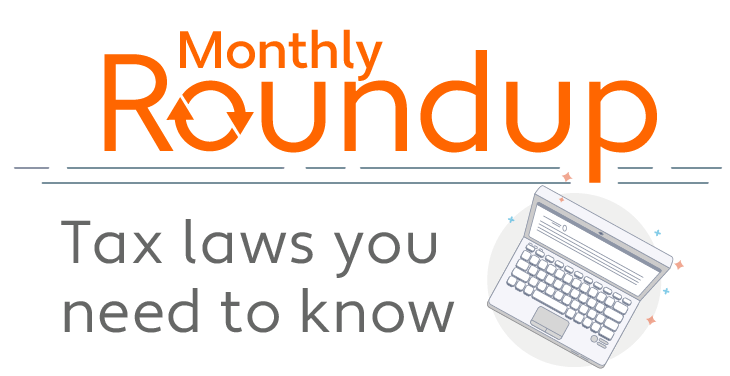Filing sales tax returns doesn’t have to be a pain point for small businesses
More businesses are now required to collect and remit sales tax in more states than ever before because of the U.S. Supreme Court’s groundbreaking decision in South Dakota v. Wayfair, Inc. (June 21, 2018). As a result, sales tax compliance has become an enormous drain for many companies, particularly small ecommerce sellers with a broad customer base.
The reason is simple: States now have the authority to impose a sales tax collection obligation on businesses with no physical presence in the state (remote sellers), as well as on businesses with a physical presence in the state.
Before the Wayfair decision, states typically couldn’t require a business to collect and remit sales tax if the business didn’t have a physical tie to the state: employees, inventory, an office, etc. Wayfair enables states to base a sales tax obligation solely on a remote seller’s economic activity in the state (economic nexus).
Today, 43 states and the District of Columbia enforce economic nexus for businesses with sales above a certain economic nexus threshold. Each state’s economic nexus threshold is unique:
- It’s $500,000 in sales in California and Texas
- It’s $100,000 in sales in Iowa and Washington
- It’s $100,000 in sales or 200 transactions in Georgia and Virginia
A threshold of $100,000 or 200 transactions can affect even very small online sellers. And once a business crosses an economic nexus threshold in a state, it must register, collect sales tax, and file returns in that state.
How do new filing obligations burden small businesses?
Economic nexus has created new burdens even for small businesses that sell into states where they have no physical presence. Before the Wayfair ruling, companies with a physical presence in only one state would generally have to register, collect, and file in only one state.
It’s different today.
A small operation can easily have significant sales in all 50 states. And that means a small operation can have an obligation to file returns in 43 states and D.C. — more, if they have a physical presence in Florida or Missouri, the only two states that have a general sales tax but don’t have economic nexus. If you're feeling baffled, consider reading Sales Tax Essentials for Small Business.
Because of Wayfair and subsequent economic nexus laws, companies that sell into states where they have no physical presence need to constantly monitor their sales in those states, to gauge how close they are to hitting the economic nexus threshold. Avalara’s free sales tax risk assessment can help with that.
Once nexus has been determined, you need to:
- Register with the tax authority
- Correctly calculate sales tax, applying the proper rate to each taxable transaction
- Validate exempt sales, collecting exemption certificates from new customers and renewing older certificates as required
- File returns and remit the collected tax by the due date
Filing returns in multiple states is burdensome. It typically entails juggling spreadsheets, tracking varying deadlines and schedules, and manually filing with each jurisdiction. Doing that in more than one or two states can quickly sap resources that could be better spent on more profitable tasks.
Fortunately, automating sales tax compliance can help companies of all sizes handle each stage.
A better way for small businesses to file returns
Avalara Managed Returns is a smarter way for small businesses and marketplaces to handle sales and use tax returns by streamlining the preparation and filing process with an integration that spans popular platforms like Amazon, Etsy, and Walmart, reducing the time spent on each return and eliminating the hassle of filing separate returns with each state.
Key benefits:
- Automatically generated Tax Jurisdiction Liability Reports
- Easy access to both previous and current year data
- Simple filing calendar setup
- Hassle-free preparation of U.S. sales and use tax forms (rates and forms updated regularly)
- Seamless integration of transaction data
- Effortless remittance to state tax authorities
- Streamlined filing services through Avalara
- Real-time tracking of return status
Managed Returns goes beyond traditional spreadsheets, offering a more efficient and accurate solution. Once set up, it takes just a few steps to prepare returns and remit payments to the appropriate jurisdictions. Plus, if your filing needs vary across different states, Managed Returns has got you covered.
Curious to learn more? Explore the features of Avalara Managed Returns here.

Avalara Tax Changes 2024: Get your copy now
Stay ahead of 2024’s biggest tax changes with this comprehensive, compelling report covering seven industries.
Stay up to date
Sign up for our free newsletter and stay up to date with the latest tax news.












